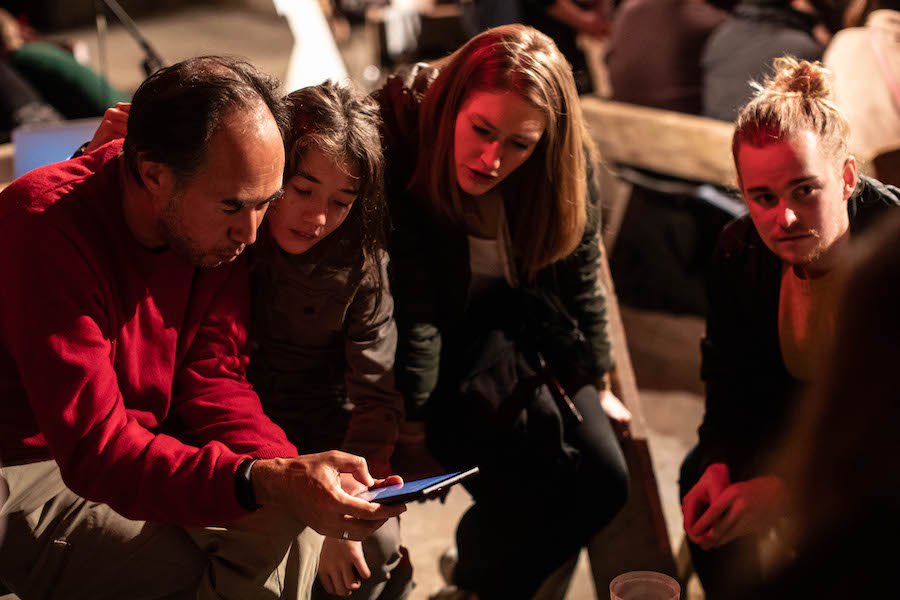“Playable theatre” is the name we use for the kind of theatre we make. But what exactly is it?
Most of all, it’s a kind of interactive theatre in which the audience takes on the leading role.
In making our shows, we’re constantly talking about “agency” – the audience’s power to make change. We always want our audience to have as much agency as possible, and that’s why, very often, we cast them as powerful people in high-stakes situations. In one of our very first interactive shows, The Situation Room, the audience played leaders in Washington and Moscow during a Cold War crisis. More recently, in Red Planet: Revolution, they play the leaders of the newly independent colony on Mars. By putting people in these roles, we’re inviting them to imagine what it’s like to wield that kind of power, and to make those kinds of choices. There are loads of shows out there, of course, which present high-status characters making high-status decisions – everything from Greek theatre to Shakespeare to Marvel movies – but it’s rare that we, the audience, get to imagine ourselves in that kind of position. In playable theatre, we want our audience to be able not just to imagine themselves in those roles, but to take on the actions of the characters so that they can change the story.
Playable theatre isn’t a completely new thing. When we started making this kind of theatre, we were thinking a lot about other kinds of structures: Augusto Boal’s idea of the theatre of the oppressed; all the many and varied kinds of theatre workshop that we’ve attended and/or run; role playing games; video games; board games. The last of these are the things I think about the most. Game design is a big feature of an Upstart show – we think of the audience as players rather than spectators. We usually give our audience a goal: protect the people of Mars; defeat the evil empire; get this child through a day at school. Sometimes these goals are collective (where an audience as a whole is playing ‘against’ the show, like in The Learning Lottery); sometimes they’re teams (like in The Situation Room where we pitted Team USA against Team Soviet Union). We have some ideas about shows where everyone is playing against each other, but we haven’t made one of those yet.
We’re still developing our thinking about this kind of work and there are those out there (Fast Familiar, for example) who have done lots of brilliant work to describe and understand the form. We’re proud to be exploring alongside them all. But I do know that the word agency is absolutely at the heart of it. Giving audiences the agency, the power, to make change in the theatre space enables us to think about how we can make change in the world beyond the theatre. So in these blogs, I’ll be writing and thinking about the kind of work we’re making and why – but I’d love to hear from you too! Please think about adding any comments or questions here and I’ll try to answer as honestly as I can. This blog should give you agency too!

